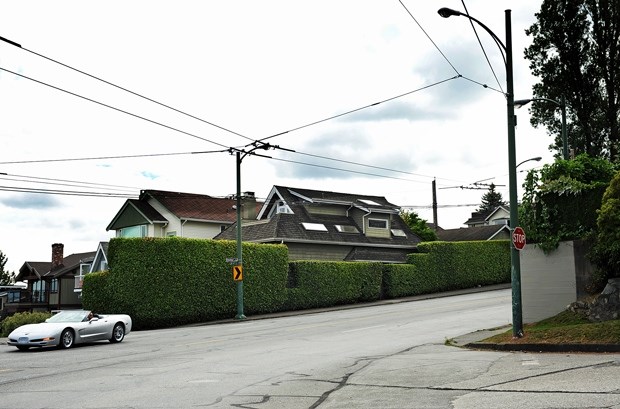In all the anguish about unaffordable housing in Metro Vancouver, much has been said about houses sitting vacant while local families move to Squamish or Winnipeg to find a detached home they can afford.
But no one talks about empty bedrooms, and how public policy rewards entitled seniors for rattling around in big detached homes full of empty bedrooms.
A lot of families with dependent children (like a lot of foreign buyers) really want detached homes. The limited supply of those detached homes is the biggest source of real estate price increases in Metro Vancouver. On Vancouver’s east side, for example, the cost of a detached home is up 20 per cent in the past year, but condos are up only 5 per cent.
Increasingly, those detached homes, many in areas well serviced by schools with shrinking enrolment, are being occupied by aging boomers.
The oldest of us will be 80 in 10 years, well past the time we needed all those bedrooms for our children, even the ones who stick around into their 30s. And we have lots of those bedrooms. Canadians have the most living space per person of any country in the world (2.5 rooms per person), according to Organization for Economic Co-operation and Development stats. I confess: I have two empty bedrooms in my home, even after converting the basement into a suite.
A decade ago, Urban Futures estimated that around 30 per cent of homes in Metro Vancouver had at least one unoccupied bedroom. That would be 220,000 empty bedrooms then, and many more in coming years as the boomer tsunami arrives. It would be interesting to calculate how many years we could go without building any new homes simply by filling up the ones we already have. (Sort of like cars, but I digress.)
What’s worse is that the majority of big detached houses are in the suburbs, a brutal place for people too old to drive. To get to immobile seniors, all their visiting children (the ones who haven’t moved to Winnipeg), their nurses, caregivers, cleaners and home deliverers have to drive long distances on ever more congested roads. Transit is often missing or too infrequent to be of practical use – and now, thanks to the recent plebiscite, it’s not going to be improved in the foreseeable future. Many immobile suburban seniors in their old family homes are doomed to slide into what the Vancouver Foundation has identified as the biggest social issue in this region: isolation.
Seniors’ lives would be richer, and their pocketbooks fuller and their kids better off, if they cashed out of their detached suburban homes into some more modest, perhaps assisted, quarters in nearby walkable communities with decent public transportation: aging in smaller places.
Yet we have a tax policy that subsidizes them to stay where they are.
The four-decade-old B.C. property tax deferment program lets people over 55 (even if they’ve only been in Canada one year) stop paying municipal property taxes. The unpaid taxes are recouped when the house is eventually sold, and the homeowner pays a niggling 1 per cent interest. On a $5,000 tax bill, that comes to $50 a year, non-compounded. (In Washington state, the rate is 5 per cent, in Alberta 2.85 per cent, and most other jurisdictions, unlike B.C., have a means test.)
B.C. homeowners go for it: a B.C. finance spokesman recently told the Calgary Herald that 36,555 B.C. homeowners use the program for all or part of their taxes, with 6,000 more signing on each year.
Essentially, B.C.’s wealthy senior homeowners (which is anyone who owns a house these days) are being gifted 1 per cent loans, covered by younger working taxpayers, as a reward for staying in their big empty homes and squeezing young families out of the housing market.
Nobody should be forced to move out of a home they love, but they also shouldn’t be subsidized to hang around in a big home they no longer need.
Peter Ladner (pladner@biv.com) is a co-founder of Business in Vancouver. He is a former Vancouver city councillor and former fellow at the SFU Centre for Dialogue. He is the author of The Urban Food Revolution.
For more business news go to biv.com



